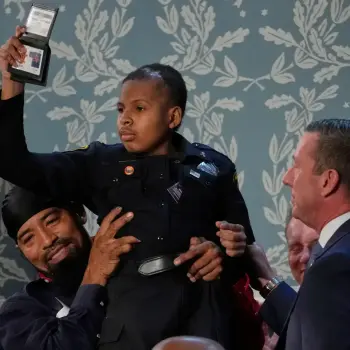Whoever eats my flesh and drinks my blood has eternal life, and I will raise them up at the last day. For my flesh is real food and my blood is real drink . . . This is the bread that came down from heaven. Your ancestors ate manna and died, but whoever feeds on this bread will live forever (Jn. 6:53-55, 58).
I'd like to begin my column this week by telling you about one of my favorite saints, St. Jean-Marie-Baptiste Vianney (1786-1859), the holy Curé of Ars, and patron of parish priests. He started his priestly life in a way that might have discouraged most of us. After a poor academic performance in seminary, he was consigned by his doubtful superiors to the tiny farming village of Ars, France. In this dingy backwater, drunkenness and frivolity were the norm, and public sin rampant. But because of his humble and persevering devotion to the Eucharist, he converted the entire town, as well as thousands of citizens from surrounding villages who flocked to him daily by the hundreds to make their confessions. To this day, his body remains incorrupt, and is venerated by about 500,000 pilgrims annually.
I share this because we all have moments when we feel ill-equipped to save souls, like below-average seminary students exiled to the hinterlands. And most of us truly are unremarkable in the eyes of the world; more frustrated, over-burdened, and exhausted than inspiring. But Jesus invites us to eat a seemingly ordinary meal of bread and wine that, in the hands of our beloved priests, becomes the power needed to radically empower our lives. When we partake of Him in this intimate and transformative way in the Holy Eucharist, we embrace the possibility of ordinary souls doing extraordinary things. Suddenly, there is life in us (Jn. 6:53). And therein lies a path of genuine glory.
Many of you are preparing students to receive sacraments this year. But all of us are laboring to bring our students to Christ, hoping even when all seems hopeless to facilitate an encounter with Jesus that will save their souls. As catechists, to bear fruit that will last (Jn. 15:16) we must begin with our own encounter with Christ through the Eucharist, the "source and summit" of our faith.
Consider this: With astounding humility, the Messiah came to us a poor, helpless infant, born in a stable. Condescending still more, His Precious Blood was poured out in suffering and death to ransom us from our sins. In perhaps His greatest act of humility, He is offered to us daily under the appearance of bread and wine in the Holy Eucharist, a form easily overlooked, ignored, disbelieved, or taken for granted. He waits for us in the tabernacle, calling to our hearts, longing to heal and transform our lives.
I have earnestly desired to eat this Passover with you . . . (Lk. 22:15).
Those who do not yet have an appreciation for the strange and wonderful power of the Holy Eucharist might find it bizarre that so many Catholics run with the devotion of smitten lovers to daily Mass, day-after-day, for years on end. But for each of those lucky souls there is a unique story of suffering that has taught them a joyful dependency on Christ's life-giving love, revealed with unspeakable beauty and tenderness in this otherworldly sacrament.
The best means to reach perfection is through receiving Holy Communion frequently. Experience sufficiently proves it in those who practice it. (St. Thérèse of Lisieux)
Consider also the many ways in which Christ is truly present to us (and through us) at Mass. Gathered as a community—as His body, the Church—with the priest standing in persona Christi, speaking Christ's living words, we enter into His once-for-all-time eternal sacrifice on the Cross. Have you ever felt so wrapped in Christ? Are you starting to see the urgency and the unspeakable privilege of getting to Mass and participating in a whole-hearted and conscientious way?
And he took bread, gave thanks and broke it, and gave it to them, saying, "This is my body given for you; do this in remembrance of me." In the same way, after the supper he took the cup, saying, "This cup is the new covenant in my blood, which is poured out for you" (Lk. 22:19-20).
In this holy communion with God, this new covenant in Christ's body and blood, we are called to save souls. But He doesn't just call us; He provides sustenance and power. His body is real food for this work, and His blood real drink.
The Eucharist thus appears as both the source and the summit of all evangelization, since its goal is the communion of mankind with Christ and in him with the Father and the Holy Spirit. (John Paul II, Ecclesia de Eucharistia)
If we truly desire to save souls, and we do, there just isn't a greater source of grace and inspiration than the Blessed Sacrament—our own dear Jesus in the unassuming form of bread and wine.





